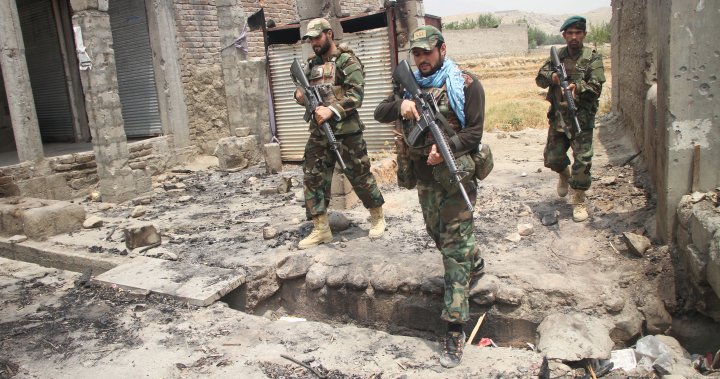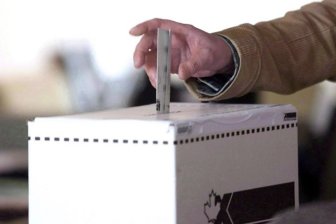United States will to continue to carry out airstrikes to support Afghan forces facing attack from the insurgent Taliban, a regional U.S. commander said on Sunday as U.S. and other international forces have drawn down troops in Afghanistan.
The Taliban escalated its offensive in recent weeks, taking rural districts and surrounding provincial capitals, after U.S. President Joe Biden said in April U.S. troops would be withdrawn by September, ending a 20-year foreign military presence.
“The United States has increased airstrikes in support of Afghan forces over the last several days and we’re prepared to continue this heightened level of support in the coming weeks if the Taliban continue their attacks,” U.S. Marine General Kenneth McKenzie told a news conference in Kabul.
Read more:
Canada offers ‘path to protection’ for Afghan interpreters amid ‘critical’ situation
McKenzie, who leads U.S. Central Command, which controls U.S. forces for a region that includes Afghanistan, declined to say whether U.S. forces would continue airstrikes after the end of their military mission on Aug. 31.
“The government of Afghanistan faces a stern test in the days ahead … The Taliban are attempting to create a sense of inevitability about their campaign,” he said.
But he said a Taliban victory was not inevitable and a political solution remained a possibility.
Afghan government and Taliban negotiators have met in Qatar’s capital Doha in recent weeks, although diplomats say there have been few signs of substantive process since peace talks began in September.

Reeling from battlefield losses, Afghanistan’s military is overhauling its war strategy against the Taliban to concentrate forces around the most critical areas like Kabul and other cities, border crossings and vital infrastructure, Afghan and U.S. officials have said.
McKenzie said there would likely be a rise in violence after a lull over a Muslim holiday this week and said the Taliban could focus on populated urban centres.
“They are going to have to deal with the cities if they want to try and claw their way back into power” he said. “I don’t think it’s a foregone conclusion that they are going to be able to capture these urban areas.”
















































